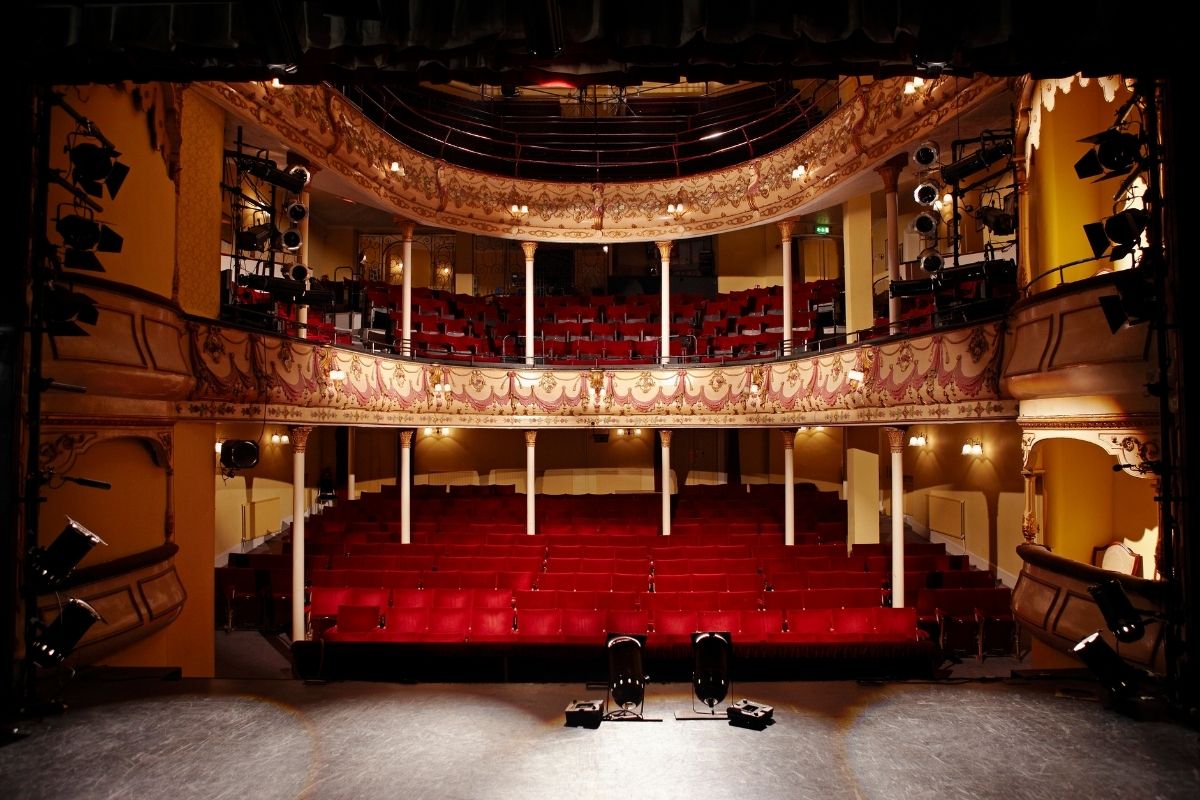A Brief History of Theater and Performing Arts Education

When online performing arts education professional and NYU Tisch professor Ruben Polendo is in conversations with students on making or engaging in theater, one of the questions that come up is about the history of theater. “How did theater start? Where did it start?” he asks. “How did it develop to the kind of theater that we recognize now?”
Theater in Prehistory
The history of the performing arts probably begins 200,000 years ago with the origin of modern humans on the savannas of Africa. It could go back even further to the evolution of pre-modern ancestors one or two million years ago. “The impulse to tell me a story is really built into us on a very biological level, that we organize the world in terms of stories,” says Dr. Jeff Kaplan, a performing arts professor at Manhattanville College.
We communicate in terms of gestures. The meaning of words really constitutes a very small part of communication. Therefore, having somebody telling a story to the group or expressing themselves through abstracted movement are probably things that go back to the beginning of time.
Theater in Greece
The origins of theater began in Ancient Greece, at least from the Western tradition. It was a series of festivals to the gods: citizens who lived in the area would gather to attend plays. They were treated as competitions and festivals. The playwright Sophocles might have battled it out against Euripides or others, sharing their newest work.
Ancient Greek theater mirrors today’s tradition if you were to see your favorite writer revealing and presenting their newest creation for the first time. “It was new. It was raw. It was kind of like watching Hamilton for the first time,” comments Dr. Harvey Young, the dean of fine arts at Boston University.
It was neighbors sitting next to neighbors, looking down and seeing each act play out on stage. It was not only a chance for people to see how these stories could reflect society. It was also their way of being part of the civic life of Athens or of other places across Greece.
The tradition of a community coming together to hear a new work and see themselves on stage has existed throughout the history of theater. It began in Ancient Greece, where Aristotle walked around lecturing and talking about the work of Homer as an epic poet, all the way through to the early 20th century.
Theater in Broader Geography
People will very quickly refer to the Greeks and the idea that Greek tradition is the beginning of theater. Ruben Polendo pushes back against that statement. “The Greek tradition, which is really remarkable, finds us in about kind of 400 BCE, give or take a few hundred years in that moment,” he says. Though Greek theater is clearly a very important moment in the history of theater, it isn’t the only moment in history where there was a spark on theater.
In fact, looking even further back into history, we see many different traces on theater and the performing arts all over the world. “Because over time and space there’s been this kind of focus on a kind of European inheritance – and Greek history has been attached to that – there’s been this kind of push to really align the beginning of theater with this kind of European narrative,” Polendo explains. He believes that alignment is not the case. Theater has existed in many different geographies and cultural frameworks through time.
Technology and Tradition
As theatrical traditions and techniques blend together in the modern day, there has been a great deal of experimentation with the way technology can be harnessed by storytellers. Technology may coexist alongside ancient theater forms such as the Noh theater in Japan.
Kabuki, Chinese opera, shadow puppets in Indonesia, and kathakali in India are other examples of these ancient forms. “Many of the cultures of the world have developed their own forms,” comments NYU Tisch professor Elizabeth Bradley. “And it would be a mistake to think that they haven’t influenced, in fact, what is felt to be mainstream Broadway theater. Because there would be no Lion King if director Julie Taymor had not been funded to go to Jakarta and learn about shadow puppets.”
